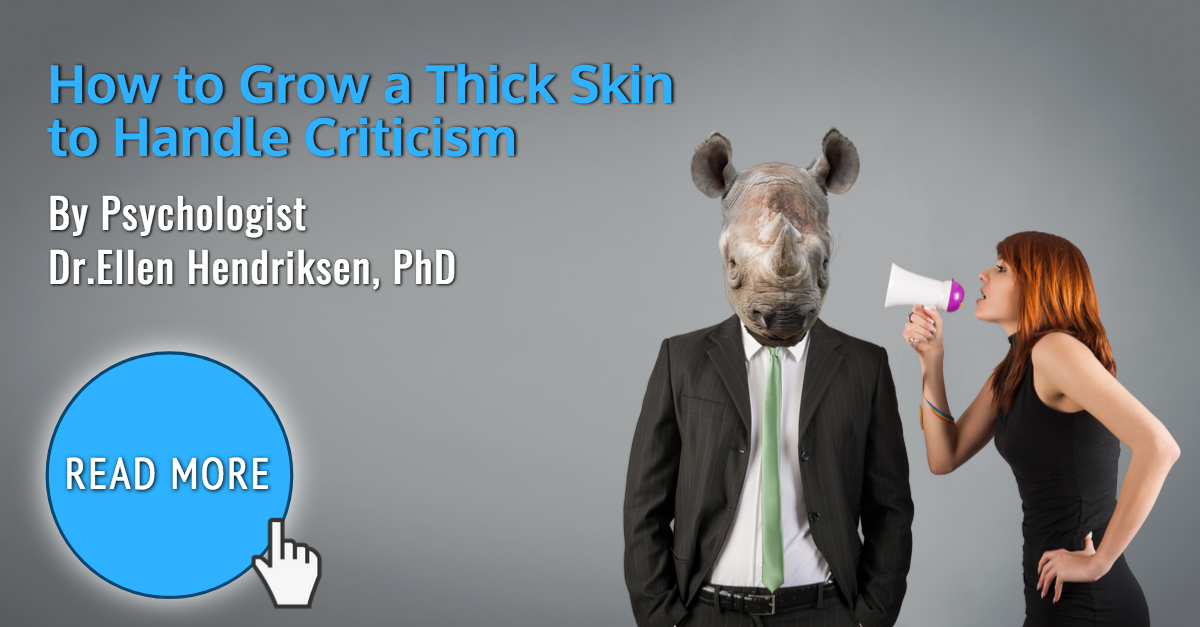How To Become A Thick Skinned Person

Imagine walking through a crowded marketplace. Every vendor is vying for your attention, voices overlapping, opinions clashing. A comment here, a critique there – it all seems to bounce right off some people, while others visibly wilt under the pressure. Ever wondered how they do it?
At its core, developing a thick skin isn't about becoming callous or indifferent. Rather, it's about building resilience and emotional intelligence to navigate life's inevitable criticisms and challenges with greater ease and self-assurance. This skill, honed over time, is instrumental in fostering healthier relationships, advancing career goals, and enhancing overall well-being.
Understanding the Need for Resilience
The desire for a thicker skin often stems from repeated experiences of feeling hurt or overwhelmed by others' words or actions. Whether it's professional feedback, personal relationships, or online interactions, navigating these situations can be emotionally taxing. Consequently, building emotional resilience becomes paramount for personal growth.
According to research from the American Psychological Association (APA), resilience is the process of adapting well in the face of adversity, trauma, tragedy, threats, or significant sources of stress. Cultivating this adaptability is not about ignoring pain, but learning to process it constructively.
Practical Strategies for Building Emotional Resilience
1. Cultivate Self-Awareness
Understanding your own triggers and vulnerabilities is the first step. Ask yourself: What types of comments or situations consistently upset me? What are my core values and beliefs that are easily challenged?
Journaling, meditation, or even a conversation with a trusted friend or therapist can help you gain a clearer understanding of your emotional landscape. By recognizing your vulnerabilities, you can better prepare yourself for potential criticisms and develop strategies to cope with them.
2. Challenge Negative Thoughts
Often, our initial reaction to criticism is shaped by negative self-talk. Phrases like "I'm not good enough" or "They're right, I always mess up" can quickly escalate feelings of insecurity and self-doubt.
Cognitive Behavioral Therapy (CBT) techniques can be incredibly helpful here. CBT encourages you to identify and challenge these negative thought patterns, replacing them with more balanced and realistic perspectives. For example, instead of "I'm a failure," try "I made a mistake, but I can learn from it."
3. Practice Detachment
Detachment doesn't mean you stop caring. Rather, it means recognizing that other people's opinions are just that – opinions. Not facts. Understanding this distinction is crucial for protecting your emotional well-being.
Consider this: their perception is shaped by their own experiences, biases, and insecurities. Their criticism might say more about them than it does about you. Learning to detach from this external validation empowers you to define your own worth and value.
4. Set Healthy Boundaries
Protecting your emotional space is essential. Learn to say no to requests that drain your energy or compromise your values. Surround yourself with people who are supportive and encouraging.
Setting boundaries isn't selfish; it's self-preservation. According to a study published in the Journal of Positive Psychology, individuals with strong boundaries report higher levels of self-esteem and overall life satisfaction.
5. Focus on Growth, Not Perfection
Embrace the concept of continuous learning and improvement. View criticism as an opportunity for growth, rather than a personal attack. When someone offers feedback, actively listen and ask clarifying questions.
Remember, even the most successful individuals have faced setbacks and criticisms. It's how you respond to these challenges that ultimately defines your character and shapes your path. As Brené Brown, a renowned researcher on vulnerability, puts it, "Courage starts with showing up and letting ourselves be seen."
The Long-Term Benefits
Developing a thicker skin isn't an overnight process. It requires consistent effort, self-compassion, and a willingness to embrace vulnerability. But the rewards are significant.
Increased confidence, stronger relationships, and a greater sense of inner peace are just a few of the benefits you can expect. By learning to navigate criticism with grace and resilience, you'll not only protect your own emotional well-being but also inspire others to do the same. Ultimately, it's about building a stronger, more resilient you.


















